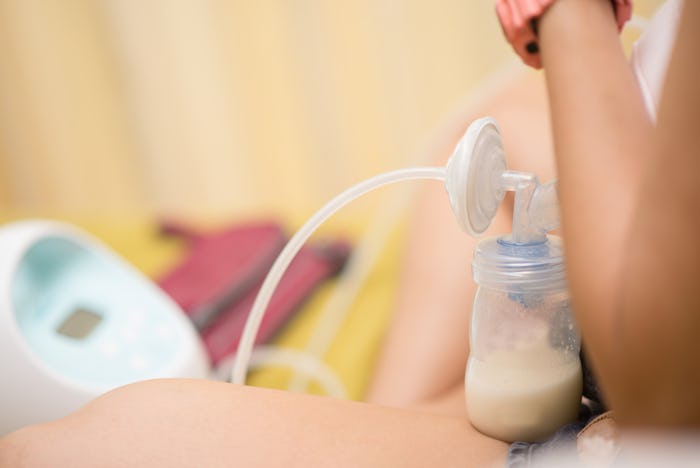Life

How To Donate Breast Milk Because Sometimes Moms Need Help
Whether you have an over-supply, or just want to pump a little bit extra, wondering how to donate breast milk is a great thing to research. And with the need for donated breast milk for premature babies and babies whose mothers, for whatever reason, can't nurse on the rise, according to NPR, it's even more important to give if you can.
The benefits of breast milk for babies' development, both physically and cognitively, is well developed and long term. And a baby who is unable to reap the benefits of breast milk due to low supply, the death of a mother, or for any other reason, is a tragedy. Luckily, donating your own milk to help babies in need is relatively simple if you're willing to go through the necessary steps, and could give a baby the chance for essential nutrients they might not otherwise get.
According to La Leche League, the first human milk bank was established in 1911 as a way for sick babies to get breast milk. Ever since, the concept has grown, and mothers from all over the world donate their milk to babies in need. Through organizations like The National Milk Bank (NMB), lactating moms can donate their own expressed breast milk to kids in need. With a detailed screening process, the NMB makes sure that mothers with a well established, healthy supply donate, ensuring the recipients get healthy, sterile milk. They have strict guidelines about storage and handling the milk you plan to donate, so reading their regulations is the best place to start.
There may also be local milk banks in your area that will accept breast milk if sending it to NMB or other companies doesn't appeal to you. The Human Milk Banking Association has an excellent resource for locating banks near you, as well as necessary info about becoming a donor.
However, donating your milk without using an agency isn't the best choice, according to La Leche League. Without the sterilization, pasteurization, and screening process that companies like the NMB use, accepting milk from others or donating your own milk may be risky. Breast milk may carry unknown contaminants and diseases that milk banks screen for.
Whatever route you decide to go, donating your own breast milk to a milk bank is a simple act that could save another child's life.